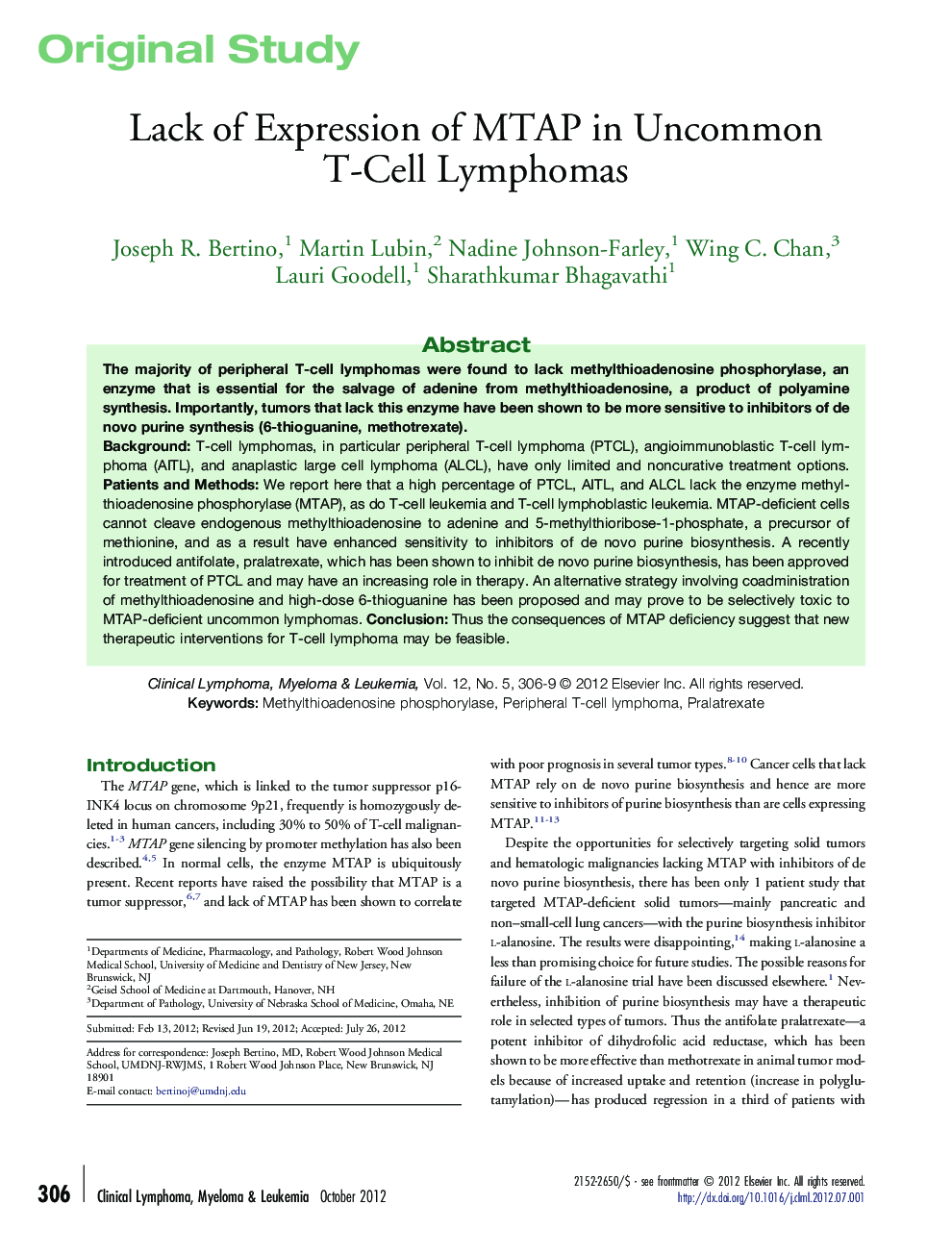| Article ID | Journal | Published Year | Pages | File Type |
|---|---|---|---|---|
| 2755249 | Clinical Lymphoma Myeloma and Leukemia | 2012 | 4 Pages |
BackgroundT-cell lymphomas, in particular peripheral T-cell lymphoma (PTCL), angioimmunoblastic T-cell lymphoma (AITL), and anaplastic large cell lymphoma (ALCL), have only limited and noncurative treatment options.Patients and MethodsWe report here that a high percentage of PTCL, AITL, and ALCL lack the enzyme methylthioadenosine phosphorylase (MTAP), as do T-cell leukemia and T-cell lymphoblastic leukemia. MTAP-deficient cells cannot cleave endogenous methylthioadenosine to adenine and 5-methylthioribose-1-phosphate, a precursor of methionine, and as a result have enhanced sensitivity to inhibitors of de novo purine biosynthesis. A recently introduced antifolate, pralatrexate, which has been shown to inhibit de novo purine biosynthesis, has been approved for treatment of PTCL and may have an increasing role in therapy. An alternative strategy involving coadministration of methylthioadenosine and high-dose 6-thioguanine has been proposed and may prove to be selectively toxic to MTAP-deficient uncommon lymphomas.ConclusionThus the consequences of MTAP deficiency suggest that new therapeutic interventions for T-cell lymphoma may be feasible.
